BMW X5 vs Porsche Cayenne - Differences and prices compared
Compare performance (625 HP vs 1156 HP), boot space and price (77100 £ vs 87000 £ ) at a glance. Find out which car is the better choice for you – BMW X5 or Porsche Cayenne?
Costs and Efficiency:
Price and efficiency are often the first things buyers look at. Here it becomes clear which model has the long-term edge – whether at the pump, the plug, or in purchase price.
BMW X5 has a to a small extent advantage in terms of price – it starts at 77100 £ , while the Porsche Cayenne costs 87000 £ . That’s a price difference of around 9943 £.
Fuel consumption also shows a difference: BMW X5 manages with 3 L and is therefore evident more efficient than the Porsche Cayenne with 4 L. The difference is about 1 L per 100 km.
As for electric range, the Porsche Cayenne performs decisively better – achieving up to 642 km, about 537 km more than the BMW X5.
Engine and Performance:
Under the bonnet, it becomes clear which model is tuned for sportiness and which one takes the lead when you hit the accelerator.
When it comes to engine power, the Porsche Cayenne has a significantly edge – offering 1156 HP compared to 625 HP. That’s roughly 531 HP more horsepower.
In acceleration from 0 to 100 km/h, the Porsche Cayenne is significantly quicker – completing the sprint in 2.50 s, while the BMW X5 takes 3.90 s. That’s about 1.40 s faster.
In terms of top speed, the Porsche Cayenne performs to a small extent better – reaching 305 km/h, while the BMW X5 tops out at 250 km/h. The difference is around 55 km/h.
There’s also a difference in torque: Porsche Cayenne pulls clearly stronger with 1500 Nm compared to 750 Nm. That’s about 750 Nm difference.
Space and Everyday Use:
Cabin size, boot volume and payload all play a role in everyday practicality. Here, comfort and flexibility make the difference.
Both vehicles offer seating for 5 people.
In curb weight, Porsche Cayenne is hardly perceptible lighter – 2130 kg compared to 2240 kg. The difference is around 110 kg.
In terms of boot space, the Porsche Cayenne offers a bit more room – 781 L compared to 650 L. That’s a difference of about 131 L.
In maximum load capacity, the BMW X5 performs barely noticeable better – up to 1870 L, which is about 162 L more than the Porsche Cayenne.
Maximum payload is identical – both can carry up to 705 kg.
Who wins the race in the data check?
The Porsche Cayenne holds a decisive overall lead in the objective data comparison.
This result only shows which model scores more points on paper – not which of the two cars feels right for you.
Costs and Consumption
View detailed analysis
Engine and Performance
View detailed analysis
Dimensions and Body
View detailed analysis
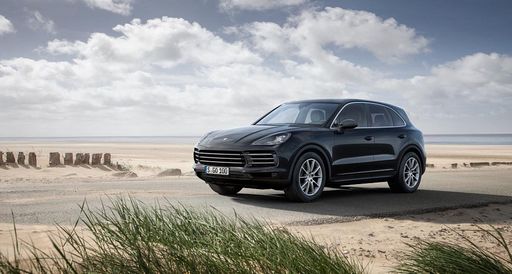
Porsche Cayenne
BMW X5
The BMW X5 blends athletic handling with a roomy, premium interior, feeling equally at home on twisty country roads and the school-run car park. Its executive-lounge cabin and confident road presence make it a tempting choice for buyers who want comfort, capability and just a little bit of bragging rights.
details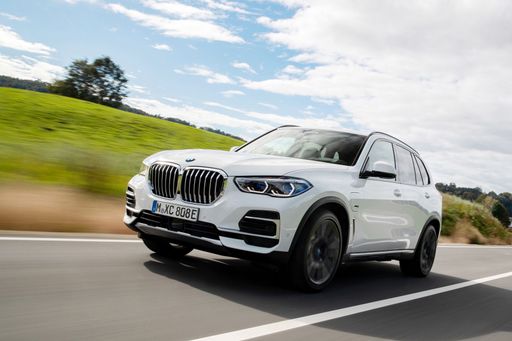
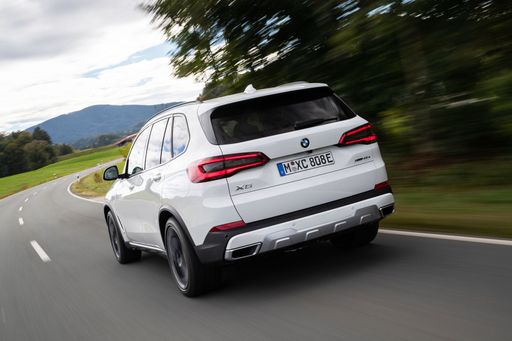
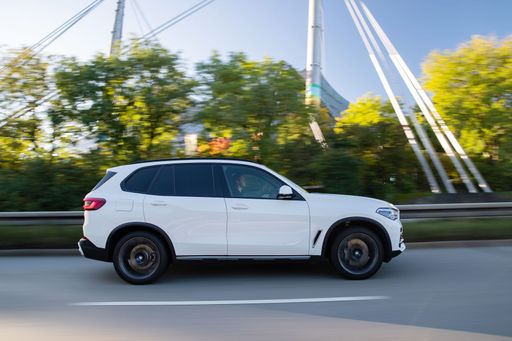
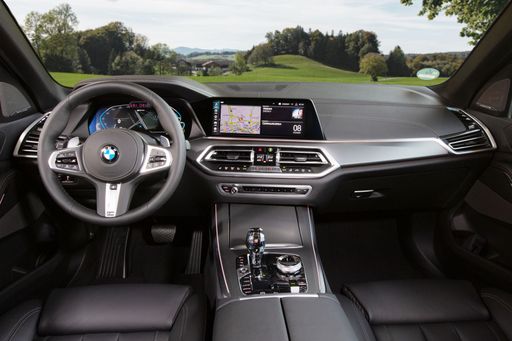
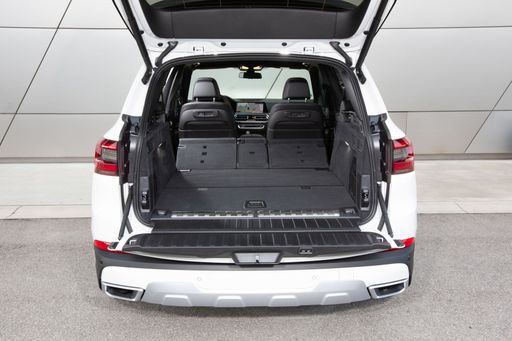
Porsche Cayenne
Few SUVs blend athletic poise and Teutonic precision like the Porsche Cayenne, putting genuine sports‑car feeling into a roomy, everyday package. If you want a practical family hauler that still makes you grin every time you merge, the Cayenne delivers — turning errands into an excuse for a spirited drive.
details
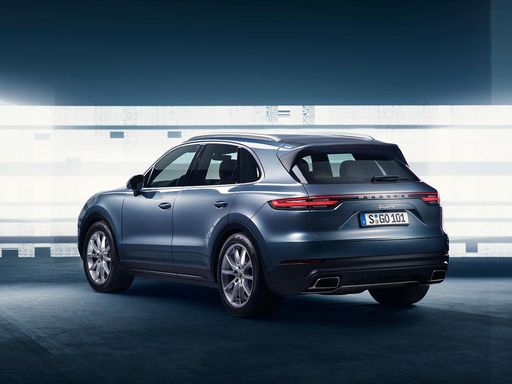
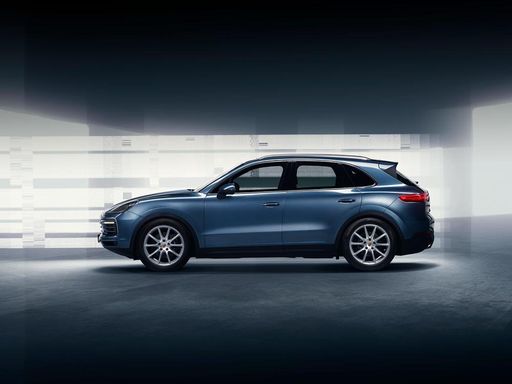
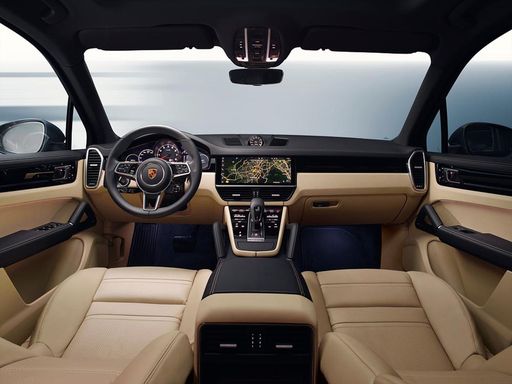
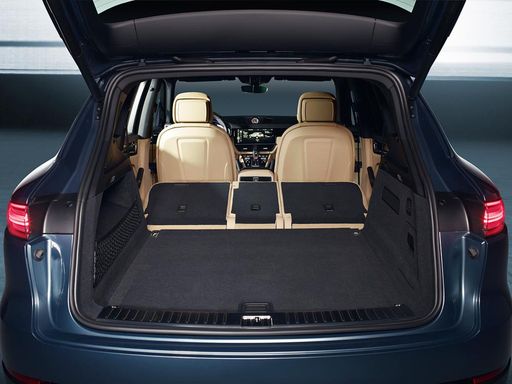
Costs and Consumption |
|
|---|---|
|
Price
77100 - 143500 £
|
Price
87000 - 186400 £
|
|
Consumption L/100km
3 - 12.8 L
|
Consumption L/100km
4 - 12.2 L
|
|
Consumption kWh/100km
-
|
Consumption kWh/100km
19.7 - 20.6 kWh
|
|
Electric Range
105 km
|
Electric Range
74 - 642 km
|
|
Battery Capacity
25.70 kWh
|
Battery Capacity
21.80 kWh
|
|
co2
68 - 289 g/km
|
co2
0 - 277 g/km
|
|
Fuel tank capacity
69 - 83 L
|
Fuel tank capacity
70 - 90 L
|
Dimensions and Body |
|
|---|---|
|
Body Type
SUV
|
Body Type
SUV
|
|
Seats
5
|
Seats
4 - 5
|
|
Doors
5
|
Doors
5
|
|
Curb weight
2240 - 2495 kg
|
Curb weight
2130 - 2720 kg
|
|
Trunk capacity
500 - 650 L
|
Trunk capacity
434 - 781 L
|
|
Length
4935 mm
|
Length
4930 mm
|
|
Width
2004 - 2015 mm
|
Width
1980 - 1989 mm
|
|
Height
1755 - 1765 mm
|
Height
1652 - 1698 mm
|
|
Max trunk capacity
1720 - 1870 L
|
Max trunk capacity
1344 - 1708 L
|
|
Payload
565 - 705 kg
|
Payload
365 - 705 kg
|
Engine and Performance |
|
|---|---|
|
Engine Type
Petrol MHEV, Diesel MHEV, Plugin Hybrid
|
Engine Type
Petrol, Plugin Hybrid, Electric
|
|
Transmission
Automatic
|
Transmission
Automatic
|
|
Transmission Detail
Automatic Gearbox
|
Transmission Detail
Automatic Gearbox, Reduction Gearbox
|
|
Drive Type
All-Wheel Drive
|
Drive Type
All-Wheel Drive
|
|
Power HP
298 - 625 HP
|
Power HP
353 - 1156 HP
|
|
Acceleration 0-100km/h
3.9 - 6.1 s
|
Acceleration 0-100km/h
2.5 - 6 s
|
|
Max Speed
250 km/h
|
Max Speed
248 - 305 km/h
|
|
Torque
540 - 750 Nm
|
Torque
500 - 1500 Nm
|
|
Number of Cylinders
6 - 8
|
Number of Cylinders
6 - 8
|
|
Power kW
219 - 460 kW
|
Power kW
260 - 850 kW
|
|
Engine capacity
2993 - 4395 cm3
|
Engine capacity
2995 - 3996 cm3
|
General |
|
|---|---|
|
Model Year
2025
|
Model Year
2025 - 2026
|
|
CO2 Efficiency Class
G, B
|
CO2 Efficiency Class
G, B, C, A
|
|
Brand
BMW
|
Brand
Porsche
|
Is the BMW X5 offered with different drivetrains?
The BMW X5 is available as All-Wheel Drive.




